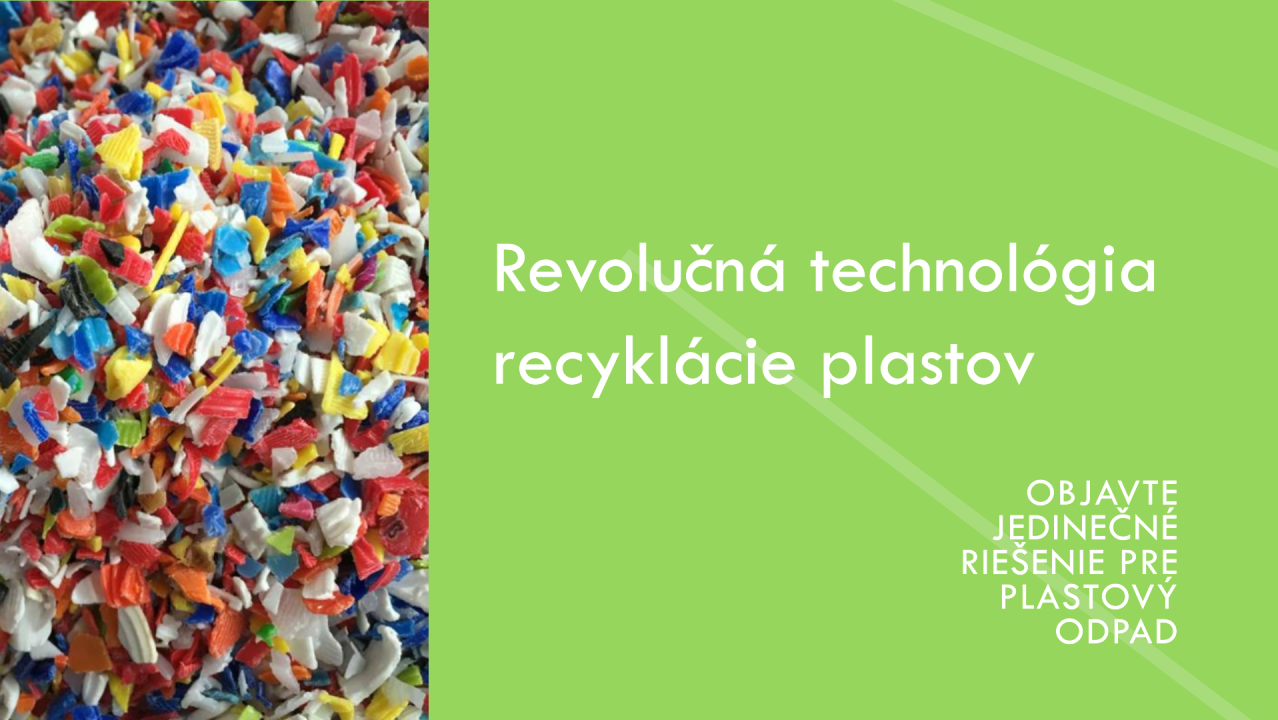Unique Technology for Plastic Waste Recycling
Plastics: A Modern Necessity with a Global Challenge
Plastics are everywhere — they have become an inseparable part of our daily lives. Nearly 8% of the world’s extracted crude oil is converted into plastic products each year, serving countless uses across industries.
However, with the rapidly growing global production of plastics, finding efficient ways to recycle and reuse them has become one of the most pressing environmental challenges of our time.
The Journey of Plastic Waste
Most plastic packaging and products eventually end up in yellow recycling bins or collection centers. Once transported to sorting facilities, their composition and recyclability determine their fate.
To cope with the increasing volume of waste, innovative recycling technologies are essential to maximize material recovery and reduce landfill dependency.
A Unique Recycling Technology in Slovakia
Slovakia is home to an innovative recycling process capable of processing mixed plastics that remain after sorting selected types such as PET, PP, and LDPE.
This technology enables recycled materials to replace virgin plastics, directly supporting sustainability and circular economy principles.
The company Eco Verde Recycling, based in Nitra, has set a new benchmark in plastic recycling for Slovakia and the Czech Republic.
With a processing capacity of up to 960 tons per month of polyethylene, polystyrene, and polypropylene, it is one of the most advanced facilities in Central Europe.
Key Advantages of the Technology
- In-house sorting line, including manual selection for maximum precision.
- Optometric sorting systems capable of distinguishing plastic materials and colors with up to 99% purity.
- Multi-stage shredding and washing processes, effectively removing impurities and contaminants.
After separation, plastics such as polypropylene (PP) and high-density polyethylene (HDPE) are transformed into regranulate — a high-quality raw material that can be tailored to customer specifications and used in the production of new plastic goods (except for food-contact packaging).
Environmental Impact and Circular Economy Benefits
This advanced technology enables the recycling of up to 23,000 tons of plastics per year, equivalent to 1,300 fully loaded trucks.
Such processing capacity significantly reduces the amount of plastic waste destined for landfills, lowers environmental pollution, and supports resource-efficient production cycles.
Conclusion
Modern recycling technologies do far more than reduce landfill waste — they preserve natural resources, cut down on raw material extraction, and strengthen the circular economy.
Sorting and recycling plastics is not just an eco-friendly gesture, but a critical step toward a sustainable future.
♻️ Let’s give plastic waste a second life — because recycling truly makes a difference.

